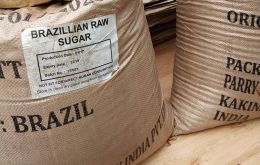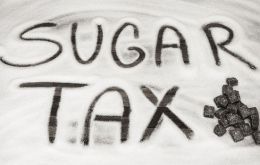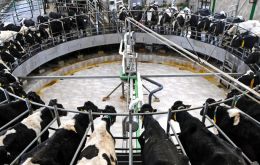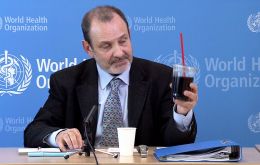MercoPress. South Atlantic News Agency
Tag: Sugar
-
Thursday, December 1st 2022 - 10:50 UTC
US blocks sugar imports from Dominican Republic, claiming abusive labor conditions

Imports of crude sugar from a company in the Dominican Republic will be blocked at all U.S. ports after the alleged use of forced labor in its production, U.S. Customs and Border Protection announced this week.
-
Wednesday, February 12th 2020 - 09:32 UTC
Brazilian governor believes less protection of sugar will mean lower prices for consumers

The governor of Sao Paulo said on Monday at an industry conference that less protection of sugar would guarantee better access and lower prices for consumers. “Sugar is the most protected product in the market, the reduction of tax and non-tax barriers would guarantee better access,” Joao Doria said in his opening remarks at a three-day industry meet in Dubai.
-
Friday, January 24th 2020 - 08:42 UTC
Brazil and India discuss reciprocal trade, poultry, sugar, ethanol

Brazil wants India to cut its import taxes on chicken and chicken products, so it can cash in on India’s burgeoning demand for poultry and poultry products as incomes rise and food habits change.
-
Tuesday, October 29th 2019 - 12:12 UTC
World Medical Association urges all governments to introduce sugar tax

In a new policy statement, the WMA calls on all national governments to reduce the affordability of added sugar and sugar-sweetened beverages through a tax on sugar. The tax revenue collected should then be used for health promotion programs aimed at reducing obesity and non-communicable diseases.
-
Thursday, October 13th 2016 - 10:19 UTC
WHO proposes taxing sugary drinks to reduce obesity, diabetes and tooth decay

Taxing sugary drinks can lower consumption and reduce obesity, type 2 diabetes and tooth decay, says a new WHO report. Fiscal policies that lead to at least a 20% increase in the retail price of sugary drinks would result in proportional reductions in consumption of such products, according to the report titled “Fiscal policies for Diet and Prevention of No communicable Diseases (NCDs)”.
-
Friday, April 8th 2016 - 07:04 UTC
FAO Food Price Index in March: sugar up, dairy products down and meats stable

The FAO Food Price Index for March rose by 1.0% compared to February, as soaring sugar prices and continued increase in palm oil quotations more than offset plunging dairy product prices. The Index averaged 151.0 points in March, its highest level in 2016, but still some 12.0% below its level of a year earlier.
-
Thursday, March 5th 2015 - 11:05 UTC
WHO calls on countries to reduce sugars intake among adults and children

A new WHO guideline recommends adults and children reduce their daily intake of free sugars to less than 10% of their total energy intake. A further reduction to below 5% or roughly 25 grams (6 teaspoons) per day would provide additional health benefits.
-
Saturday, October 19th 2013 - 15:40 UTC
Fire ravages Brazil’s main sugar terminal paralyzing operations and boosting prices to a year high

A fire in Santos ravaged Copersucar's sugar terminal in Brazil, paralyzing operations of the world's biggest sugar trader and putting 10 million tons of export capacity offline for six months or more.
-
Wednesday, May 30th 2012 - 05:12 UTC
Merger in Brazil creates market leader in sugar, rice and canned fish

Brazilian sugar and ethanol producer Cosan and the country's largest rice producer, Camil Alimentos, reached an agreement to merge their food divisions, Cosan said in a statement this week.
-
Sunday, February 5th 2012 - 08:02 UTC
Added sugar and sweeteners are “health risks as serious as alcohol and tobacco”

US experts have argued that sugars and sweeteners added to foods pose such a serious health risk that they should be controlled in the same way that alcohol and tobacco are, according to commentary in the journal Nature.
